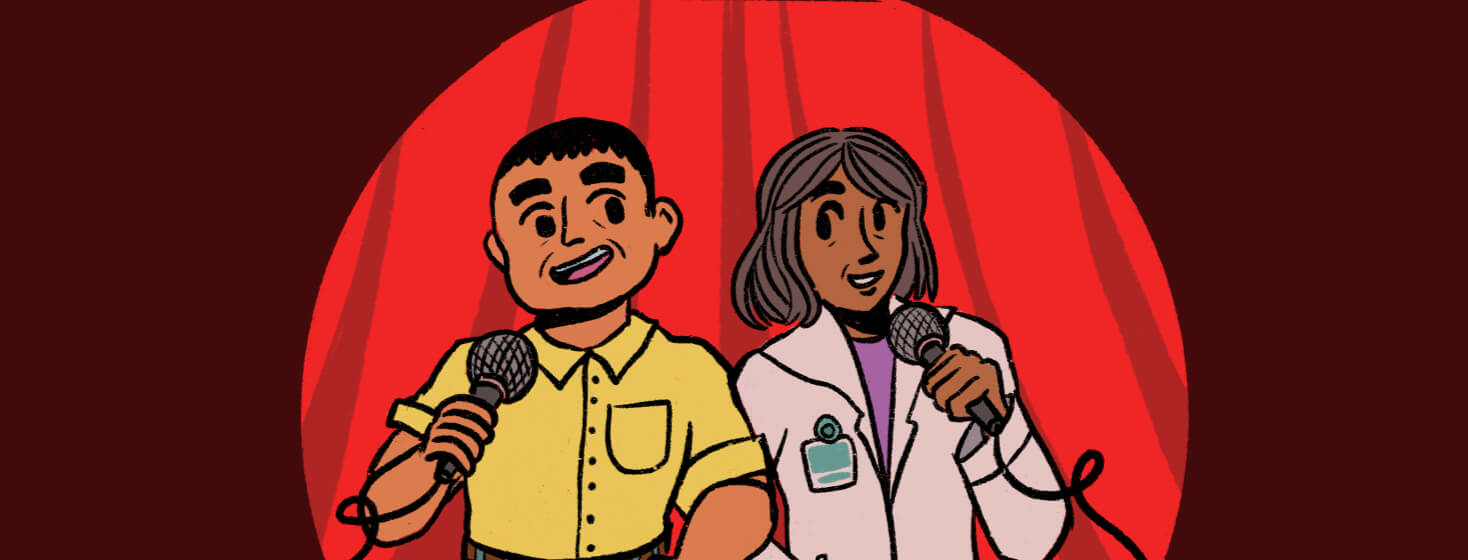Whose Loin is it Anyway? Improv and Prostate Cancer
When I first took an improv class, I realized I had been practicing improv rules all my life. The class gave me a new vocabulary to describe what I did, and helped me learn how to apply these rules in short-form improv comedy as well as engineering and management. I’m a member of the Applied Improvisation Network, and have seen how others used improv to address a number of hard issues.
Prostate cancer enters my life
About 5 years into my improv career, I received a diagnosis of prostate cancer. To my non-surprise, the rules have greatly helped me navigate this new reality.
Depending on the improv teacher, there are four, wait – five, perhaps three rules of improv. I offer 6, and please argue with someone else whether these are unique, or whether some are not rules but corollaries or another classification. Improv rules are as hotly debated as anything in the universe. Someone will develop a Unified Improv Theory someday, and that person will win a Nobel Prize. I’m already planning a trip to Stockholm.
New application of the rules
My six rules of improvisational acting and/or living are:
- Yes, and
- Listen
- Make your partner look good
- Suggestions are better than questions
- Respect boundaries
- Embrace failure
First, you may have heard of "Yes, and." In stage improv, saying "Yes, and" means cooperating and collaborating with your improv partner in a scene. If they say, "This is my pet elephant, and I’m teaching her ballet," a proper response might be, "Yes, and what a lovely tutu that elephant is wearing."
An improviser who denies the situation their partner has presented is said to be blocking, or denying the truth, of the scene. Blocking is rather bad form, old chap. If you respond, “That’s not an elephant,” you deprive your partner the chance to create fun for you, for themselves, and for the audience.
Acknowledge a new truth in life
When my urologist first said, “You have prostate cancer,” I said “Yes, and.” Yes, and tell me how to live with it. Yes, and tell me how to cure it. Yes, and that’s a lovely tutu. I could have started with, “No, you’re wrong,” but that would be denying the doctor and denying the situation.
Whenever a new problem raises its homely head, denial is usually the worst thing you can do. “Yes, and” doesn’t mean rolling over. “Yes, and” means you acknowledge a new truth in your life, even though that truth is going to last a lot longer than a two-minute improv game. “Yes, and” acknowledges the elephant in the room, but puts it on notice that you’re also in the room, and you have a say in the future.
Some teachers separate the “Yes” from the “And,” because acknowledging and validating the scene is a critical step. Until you agree on the “Yes,” there can be no “And.” I keep them together because they are joined at the hip, both on stage and in real life. This may cost me some votes from the Nobel committee, but I’ll have to risk it. Up next: Listen.

Join the conversation